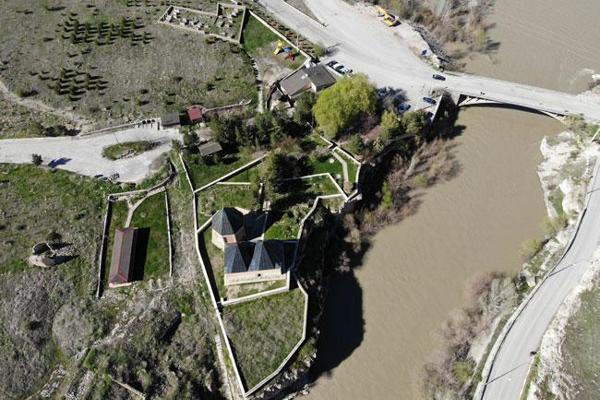Turkish court cancels environmental clearance for hydroelectric dam due to ‘stress on fish’
Dinçer Gökçe – ERZİNCAN


A court in the northeastern province of Erzincan has cancelled the environmental clearance for a hydroelectric (HES) dam planned for construction on the Karasu River.
The court’s decision was mostly based on the reason that the environmental changes would have stressful effects on the river’s 23 different fish species, eventually leading them to become sick and die.
The court’s decision came after a group of locals filed against the construction of the HES on the river because of the “sociological and ecological damage the project would cause,” despite the positive environmental impact assessment (EIA or ÇED in Turkish) the Ankara-based construction firm received from the Environment and Urban Planning Ministry.
The firm’s project consisted of the construction of a dam in Erzincan’s Kemah district as well as a hydroelectric power plant on the Karasu River. The locals in the lawsuit noted the project would lead to the submergence of various shrines and graveyards sacred to Alevis in the region. They also noted 25,385 trees would be cut down, the depth of the river would decrease and the fish would not adapt to the stagnant waters of the dam.
After taking the testimony of both sides, the Erzincan court cancelled the project on the grounds that the EIA report did not include precautions for the prevention of negative environmental effects.
According to the court, there was no information in the report of whether a “fish ladder” would be designed to facilitate the migration of the fish. The court also said the report did not include information as to how many kilometers the fish would be transported into containers and how much time it would take to transport the fish to another habitat, and that transporting the fish would put them distress.
“There are many reasons for the court’s decision to annul the project, such as the fish whose habitats will be at risk because of the dam and the risk of a landslide on the project site,” said Duygu Kılıç Çaylı, the attorney representing the locals regarding the court rulings.
This is not the first time the project’s EIA report has been turned down by a court. In 2015, a court in the Central Anatolian province of Sivas had ruled against the first EIA report, but after revising the report, the firm had applied to the ministry once again followed by another clearance from the Environment and Urban Planning Ministry.
